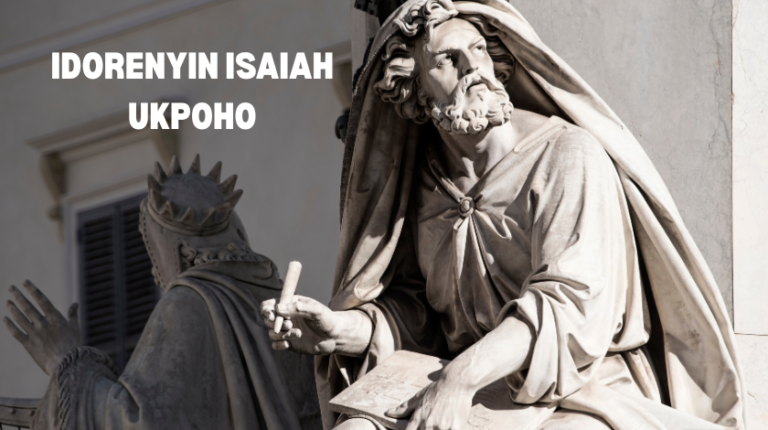
If you’ve ever opened the Book of Psalms, you know it is full of poetry, prayer, and wisdom. Pesalema 1 (or Psalm 1) is the very first psalm in the Bible, and it sets the tone for the rest of the book. It is short, but incredibly powerful. Many people call it the “gateway to the Psalms” because it introduces one of the Bible’s most important themes: the difference between the way of the righteous and the way of the wicked.
In this article, I’ll break down Pesalema 1 line by line, explain what it means in simple language, and share how its message applies to modern life. I’ll also add some personal reflections and examples, because this psalm isn’t just a piece of poetry — it’s a practical guide for everyday living.
Whether you’re new to reading the Bible or have been reading it for years, this guide will help you appreciate Pesalema 1 more deeply.
What Is Pesalema 1 (Psalm 1)?
Pesalema 1 is the first psalm in the Book of Psalms. It is usually categorized as a wisdom psalm because it teaches us about two paths we can take in life:
-
The path of the righteous (those who love God and follow His ways)
-
The path of the wicked (those who ignore God and go their own way)
It’s only six verses long, but every verse is packed with meaning. Here’s the text (in English, simplified):
Psalm 1 (Simplified):
Blessed is the person who does not walk with the wicked,
or stand with sinners,
or sit with those who mock God.
Instead, they delight in God’s law
and think about it day and night.
They are like a tree planted by streams of water,
which gives fruit in season,
and whose leaf does not wither.
Whatever they do prospers.The wicked are not so —
they are like chaff that the wind blows away.
Therefore, the wicked will not stand in judgment,
nor sinners in the gathering of the righteous.For the Lord knows the way of the righteous,
but the way of the wicked will perish.
Verse-by-Verse Explanation
1. “Blessed is the person…”
The very first word — blessed — tells us this psalm is about happiness. In Hebrew, the word means “deep joy” or “contentment.” It’s not just about feeling good for a moment, but about having a life that is truly satisfied.
My reflection: This verse reminds me that happiness isn’t found in what we buy, who we impress, or how successful we look on social media. It’s found in how we live.
2. “Who does not walk in the counsel of the wicked…”
This part warns us about three levels of influence:
-
Walk – casually going along with bad advice
-
Stand – staying longer, getting comfortable in bad company
-
Sit – fully settling down and agreeing with a sinful lifestyle
It’s a progression: first we listen, then we join, then we belong. Psalm 1 warns us to be careful who we follow.
Example: When I was in school, I had friends who constantly complained about teachers and skipped classes. At first, I just listened. Then I joined them once or twice. Soon, I was skipping class regularly. It started small — just “walking” with them — but it led to standing and sitting in the wrong crowd.
3. “But they delight in the law of the Lord…”
Instead of following bad advice, the blessed person finds joy in God’s Word. This isn’t just reading out of duty — it’s enjoying it.
Practical tip: Try reading a small portion of the Bible every day, even if it’s just one verse. Think about it during the day. Over time, it becomes part of your thinking, just like a favorite song gets stuck in your head.
4. “They are like a tree planted by streams of water…”
This is a beautiful picture. A tree by water has deep roots, stays green, and produces fruit. In the same way, a person who lives by God’s Word grows strong, stays spiritually healthy, and blesses others.
Personal note: I once went through a very stressful period at work. I noticed that on days when I read and reflected on Scripture in the morning, I handled pressure much better. I felt “rooted.” Days when I skipped that time, I felt dry and easily shaken.
5. “The wicked are not so…”
The psalm contrasts the wicked with the righteous. Instead of being like a strong tree, they are like chaff — the useless shell of grain that is blown away by the wind. This means their life lacks stability and lasting value.
6. “The Lord knows the way of the righteous…”
The psalm ends by reminding us that God watches over those who choose the right path. He doesn’t just see them — He is involved in their lives. But the way of the wicked leads to ruin.
Key Lessons from Pesalema 1
Here are some practical lessons we can apply today:
-
Be careful who you follow. Your friends, social media, and favorite influencers shape how you think.
-
Make time for reflection. Thinking about good things daily changes how you act and react.
-
Build deep roots. When you invest in good habits, you become more resilient in hard times.
-
Understand the long-term view. The righteous and wicked may look the same today, but their paths lead to very different destinations.
Modern Applications
Even if you are not religious, Pesalema 1 still offers timeless wisdom:
-
Positive influences matter. Avoid toxic environments that pull you down.
-
Meditation works. Thinking deeply about good things improves mental health.
-
Consistency wins. Like a tree growing over years, small daily choices lead to big results.
Common Questions About Pesalema 1
Is Pesalema 1 Only for Religious People?
No. While it’s written from a faith perspective, its message about avoiding harmful influences and focusing on what nourishes your soul is relevant for everyone.
Does “Prosper” Mean Wealth?
Not necessarily. In the biblical sense, prosperity means flourishing — growing, succeeding in purpose, and living a full life, not just making money.
My Personal Takeaway
Pesalema 1 reminds me that I always have a choice. Every day, I can choose which path to walk — one that leads to life and peace, or one that leads to emptiness. It’s not always easy, but this psalm encourages me to stay rooted, stay focused, and trust that doing the right thing pays off in the long run.
Conclusion
Pesalema 1 is a short but powerful guide to living a meaningful life. It teaches that real happiness comes from choosing the right path, staying away from destructive influences, and delighting in what is good and true. Like a tree planted by water, a person who follows this advice becomes strong, fruitful, and enduring.
If you take anything from this article, let it be this: your daily choices matter. Who you listen to, what you think about, and what you value will shape your future.






